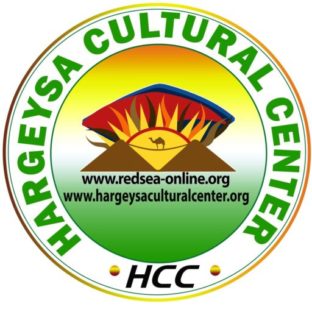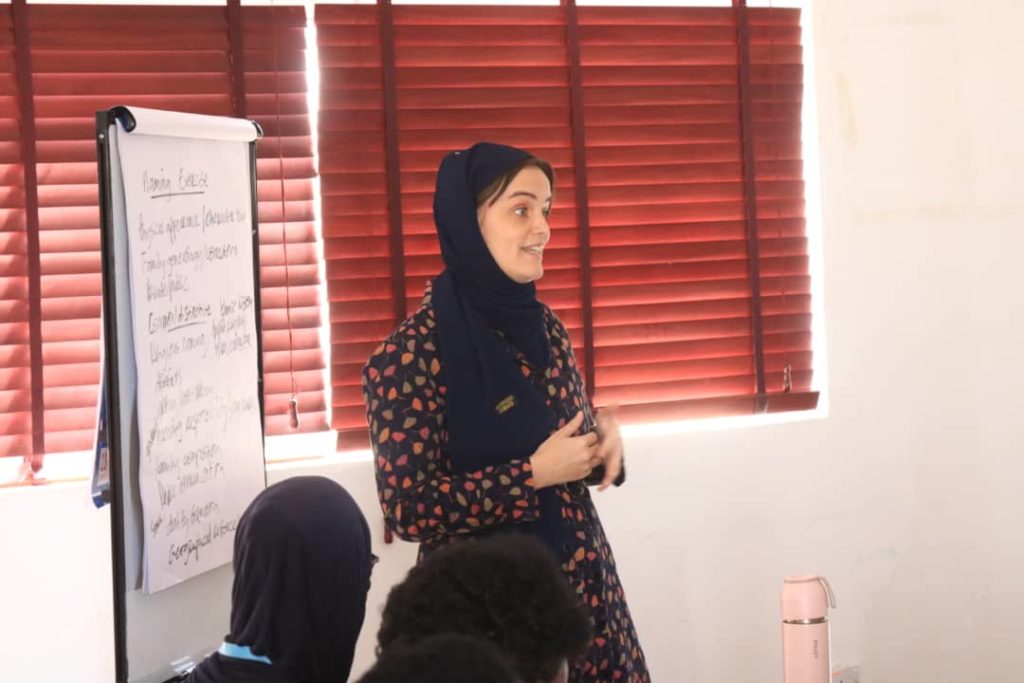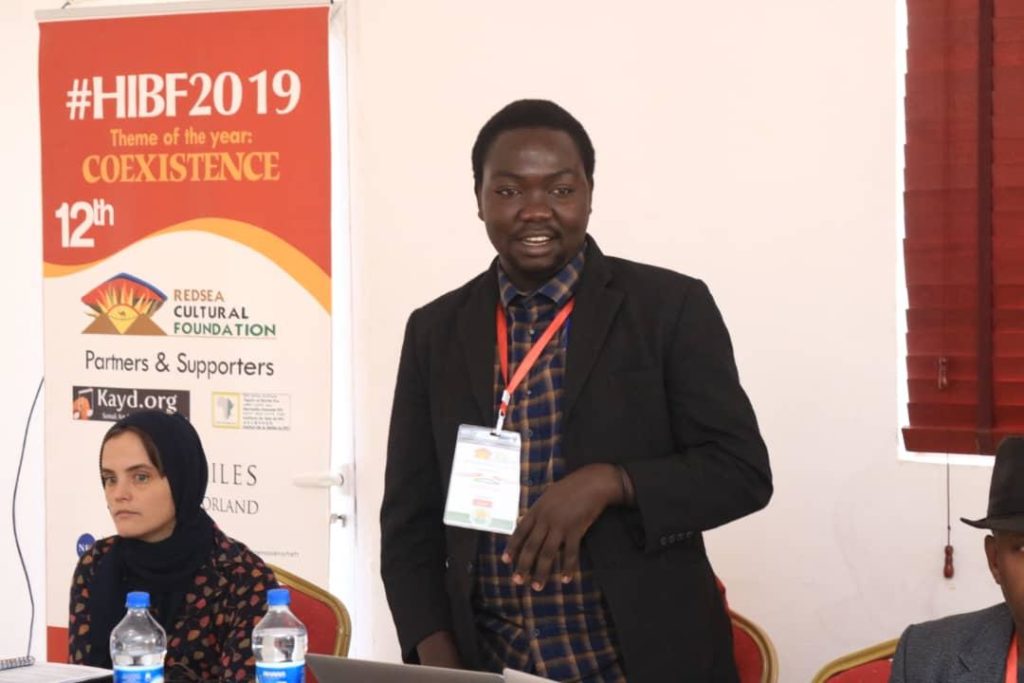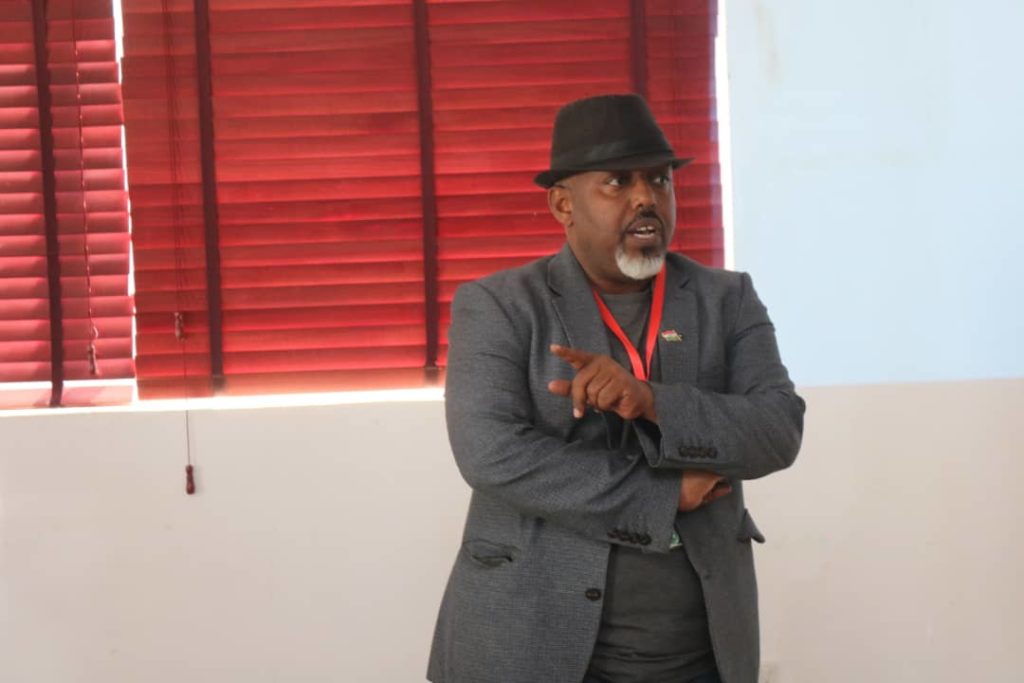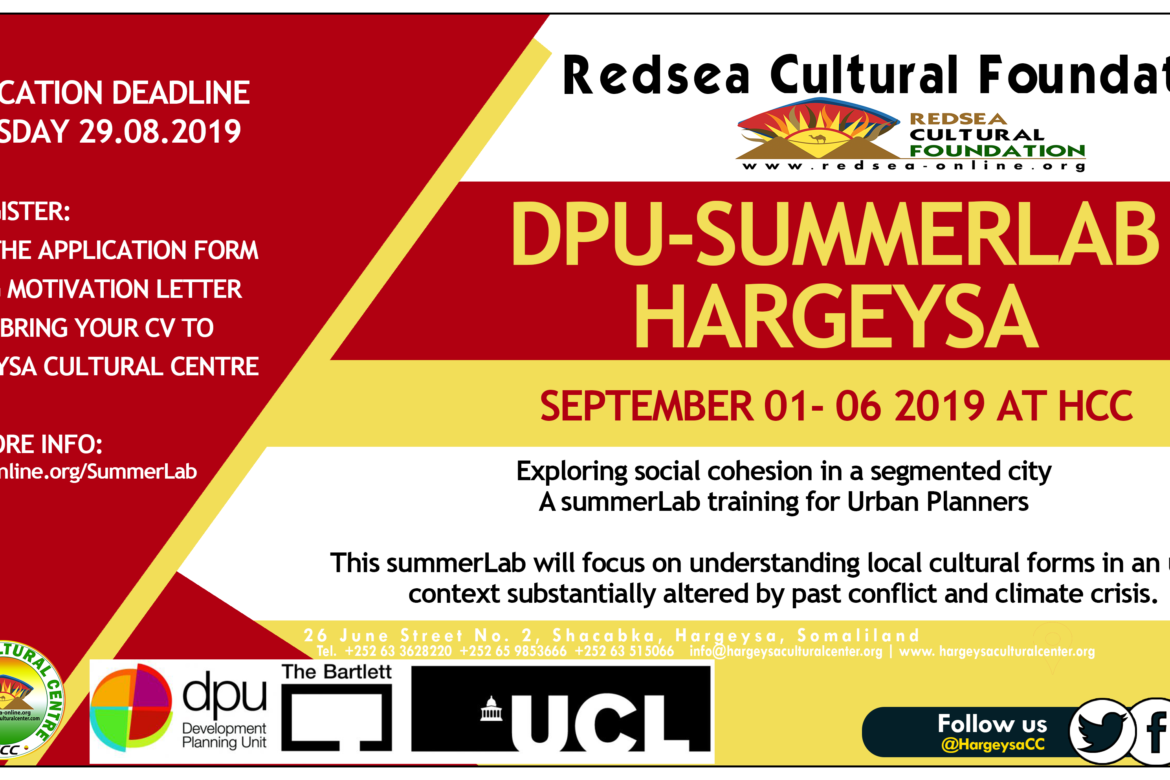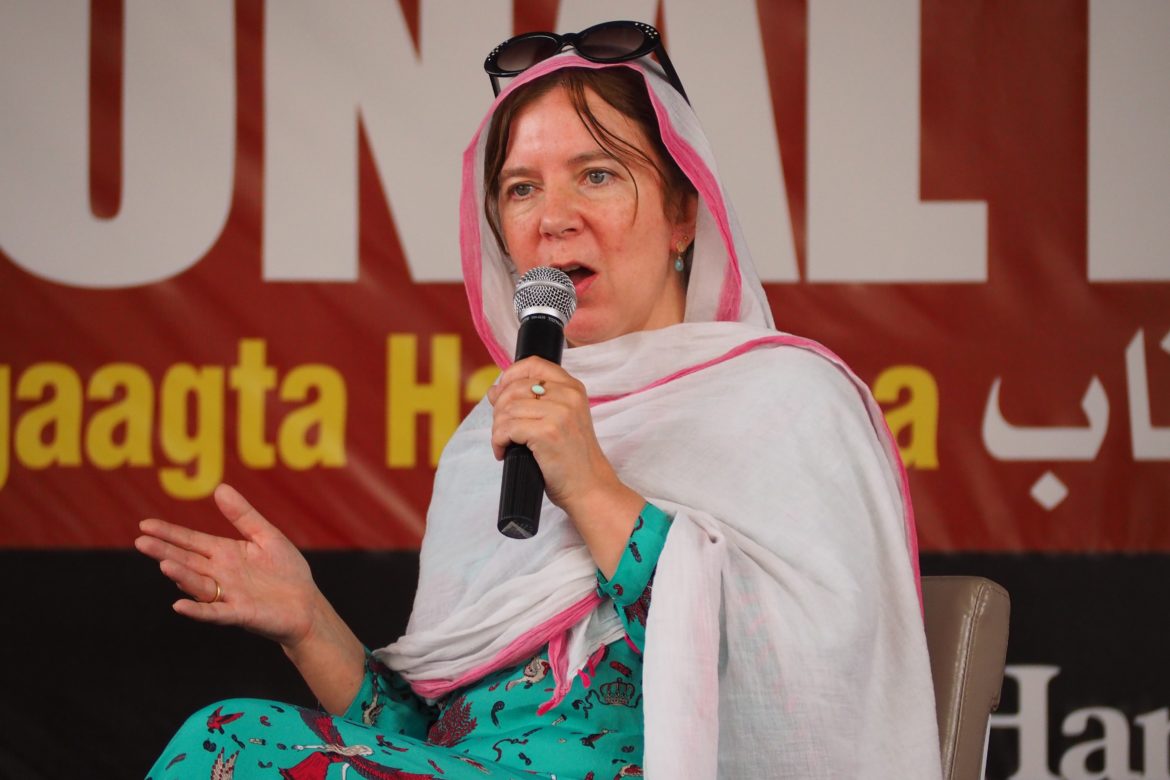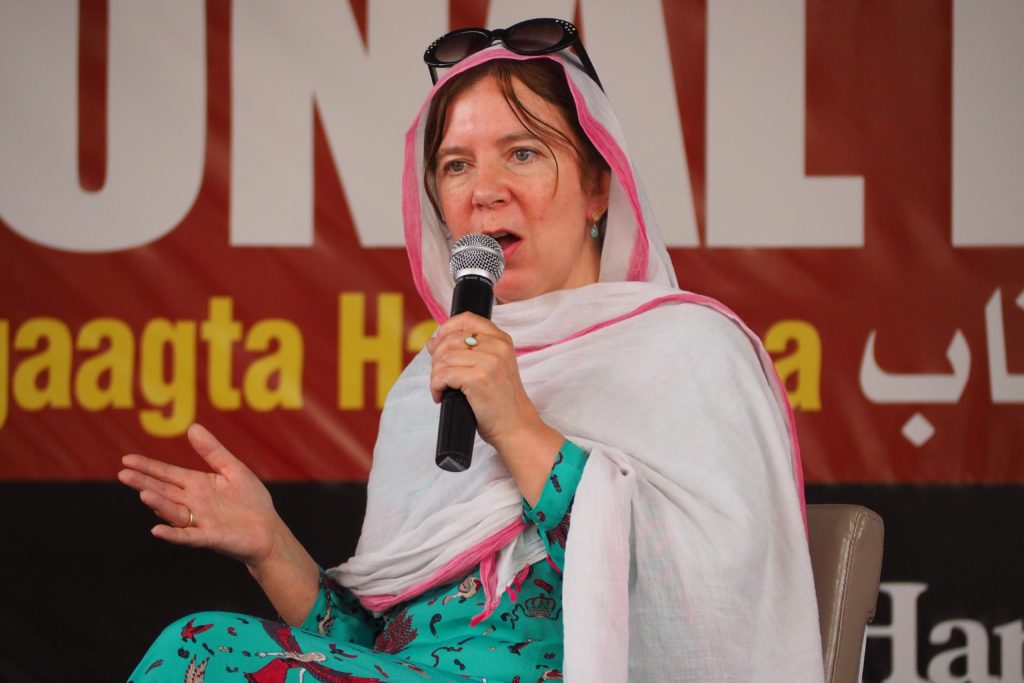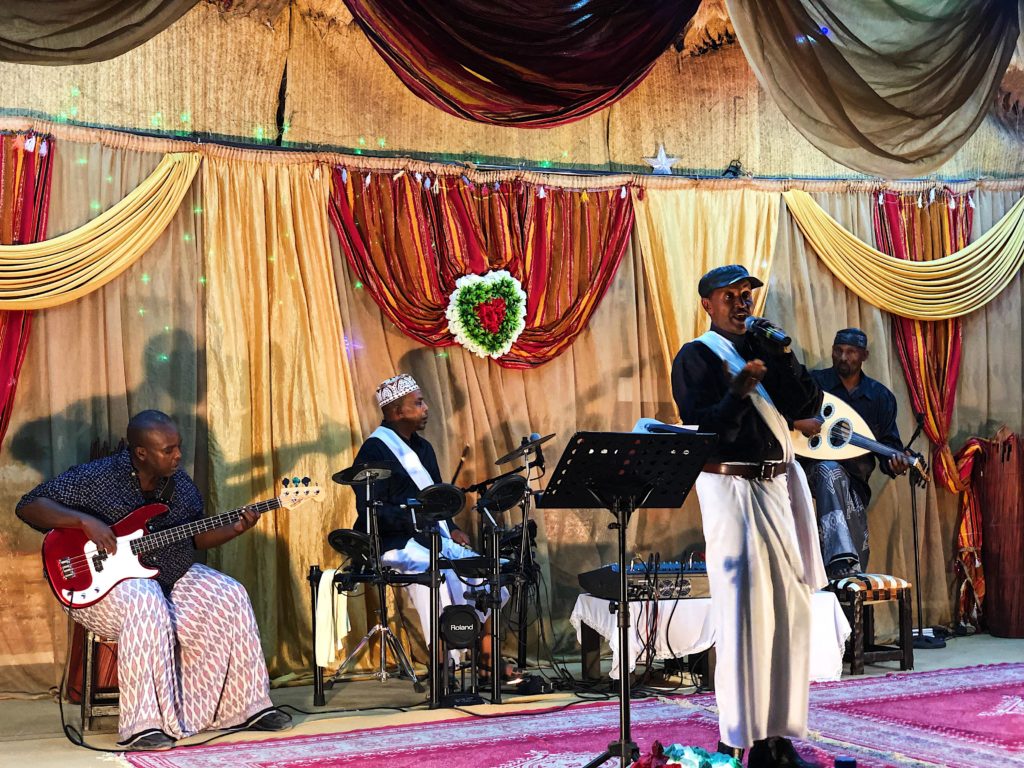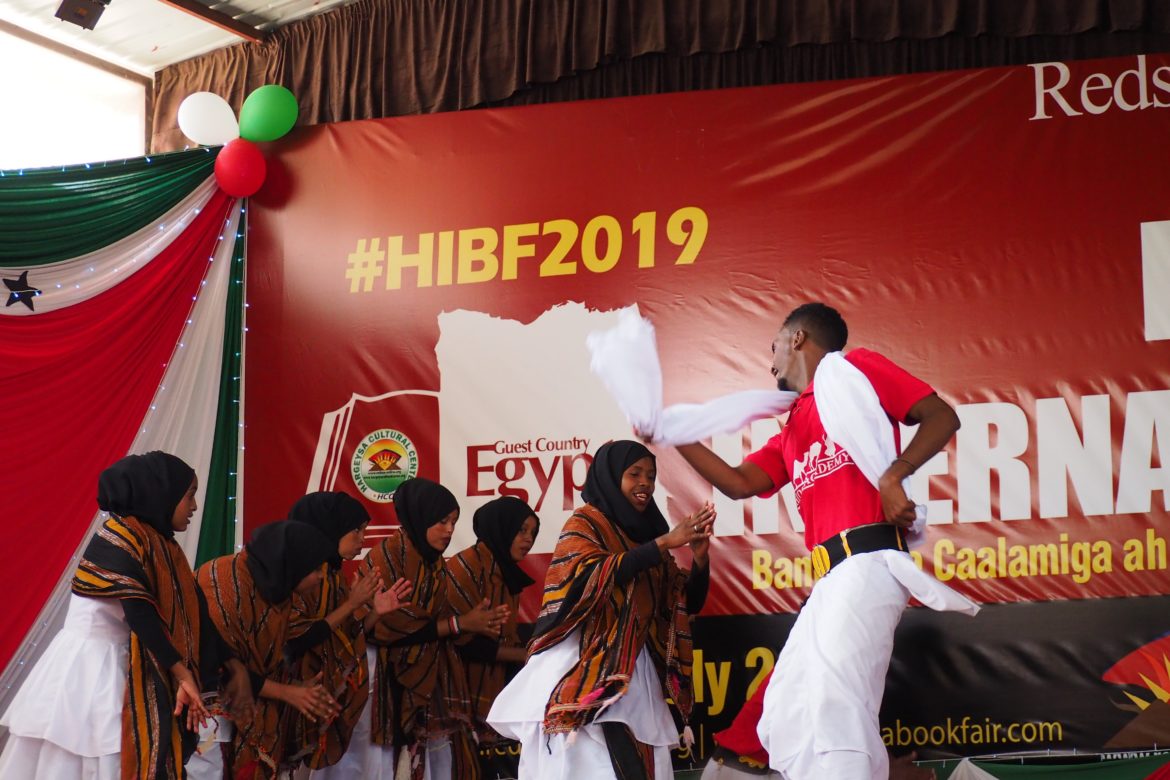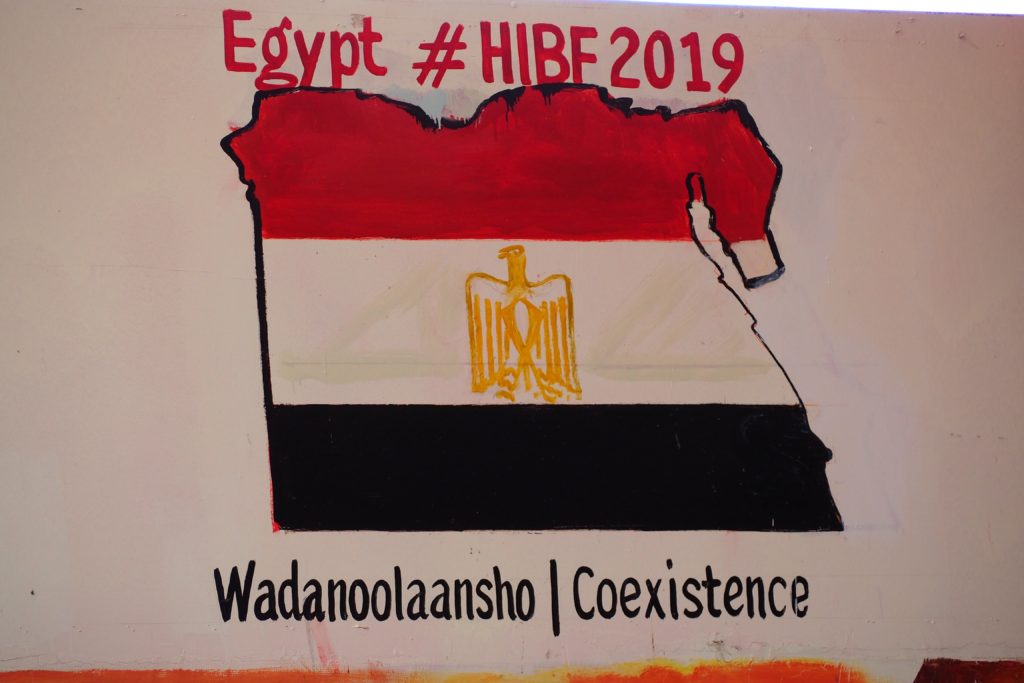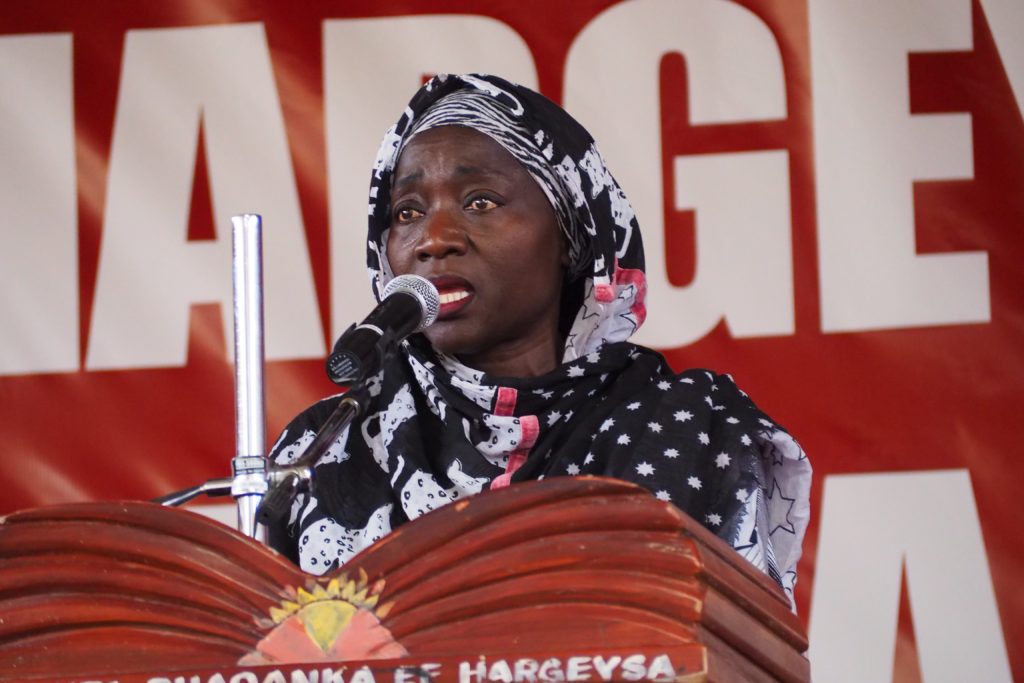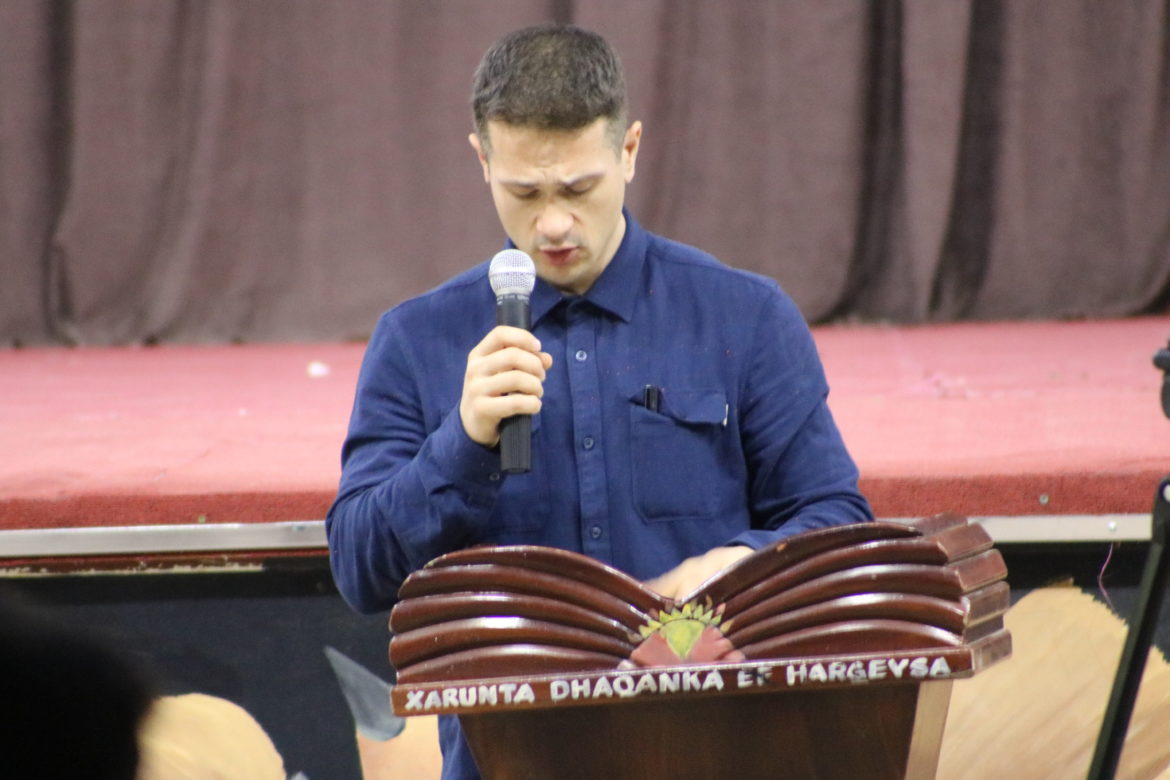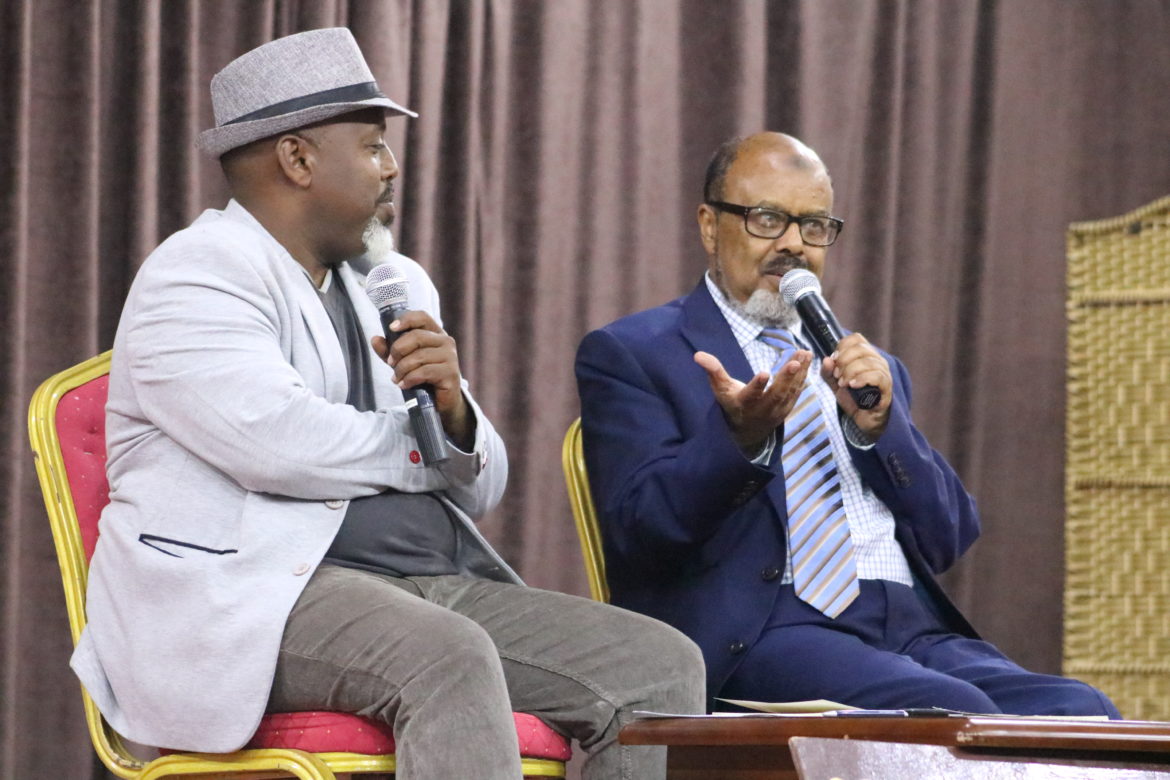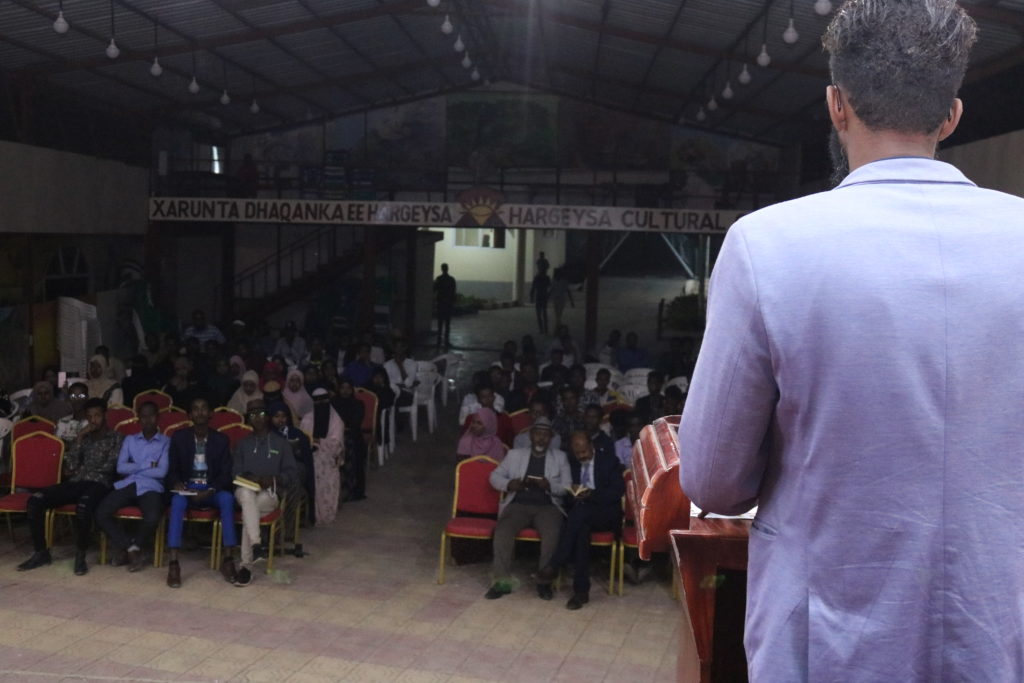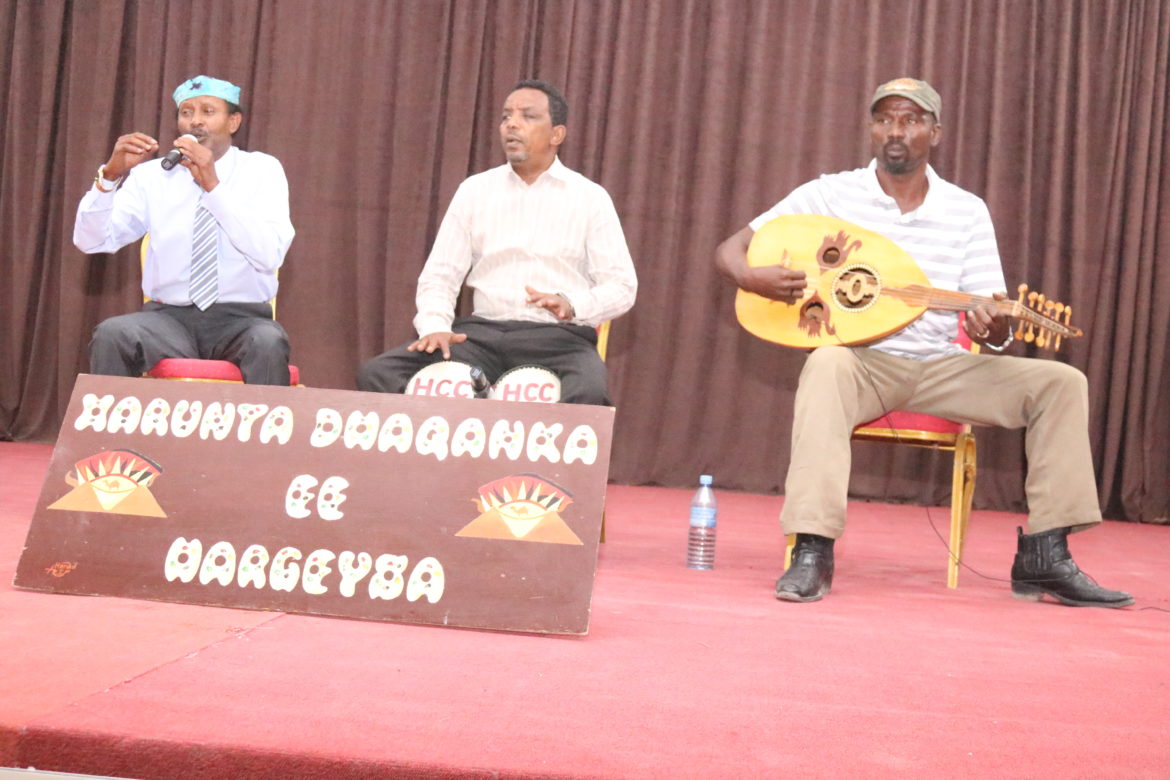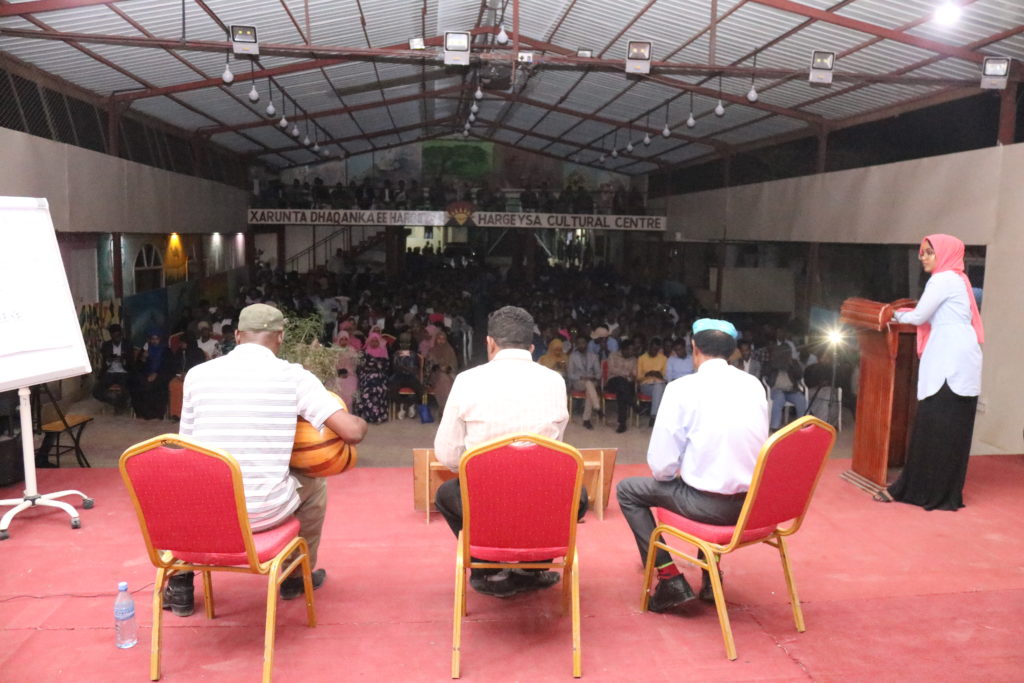Day 3 HIBF 2019: Research on Migration, Role of Small Magazines and In Conversation with Maaza Mengiste- The Author of ‘Beneath the Lion’s Gaze’
Fatuma Abdishukri Ahmed
Research on Migration Panel
The purpose of this session was for panellists to give an overview and present findings from different research projects they had conducted. The research projects discussed in this session were: Migrants on the Margins, Safe and Sustainable Cities and Security on the Move. The Director General of the Ministry of Planning in Somaliland, Mubarik Abdullahi was also part of this panel.
Researchers on the panel highlighted land ownership as a cross cutting security concern for migrants in the cities. International organisations in collaboration with the Somaliland Government have started rolling out relocation initiatives for Internally Displaced Persons (IDPs) to formal permanent settlements. However, the promise of being resettled has created a new dynamic on informal settlements- people who want to own property but have had no means have now moved to informal settlements in the hope of owning property. Therefore, one downside of the relocation initiative is a pull factor for people to move to informal settlements.

Research on migration panel
Abdirahman Edle highlighted the following findings from the project, Security on the Move in relation to the poignant living conditions in informal settlements:
- Serious congestion in the neighbourhoods particularly State House
- Inaccessibility
- Poor social amenities and infrastructure
The Director General of the Ministry of Planning, Mubarik Abdullahi emphasized that as far as refugees are concerned, the Somaliland constitution adheres to the International Convention relating to Refugees and the Universal Declaration of Human Rights. As for IDPs, Mubarik explained there are two groups of IDPs in Somaliland- returnees who had fled the country during the war and rural people migrating to urban centres.
Mubarik suggested the following solutions as means to address the imminent issue of migration in Somaliland:
Urban Solutions: Somaliland has a significant number of IDPs in urban centres. These migrants should be relocated to formal settlements. They also need to be provided with basic social services such as health, wealth, sanitation, education and transportation. In order to ensure sustainable economic conditions, the migrants should be provided with relevant economic opportunities.
Rural Solution: Mubarik profoundly expressed that rural-urban migration is inevitable but the rate at which it happens can be reduced. He further expressed the need to devise strategic policies that will lead to diversification of livelihood and development in rural areas.
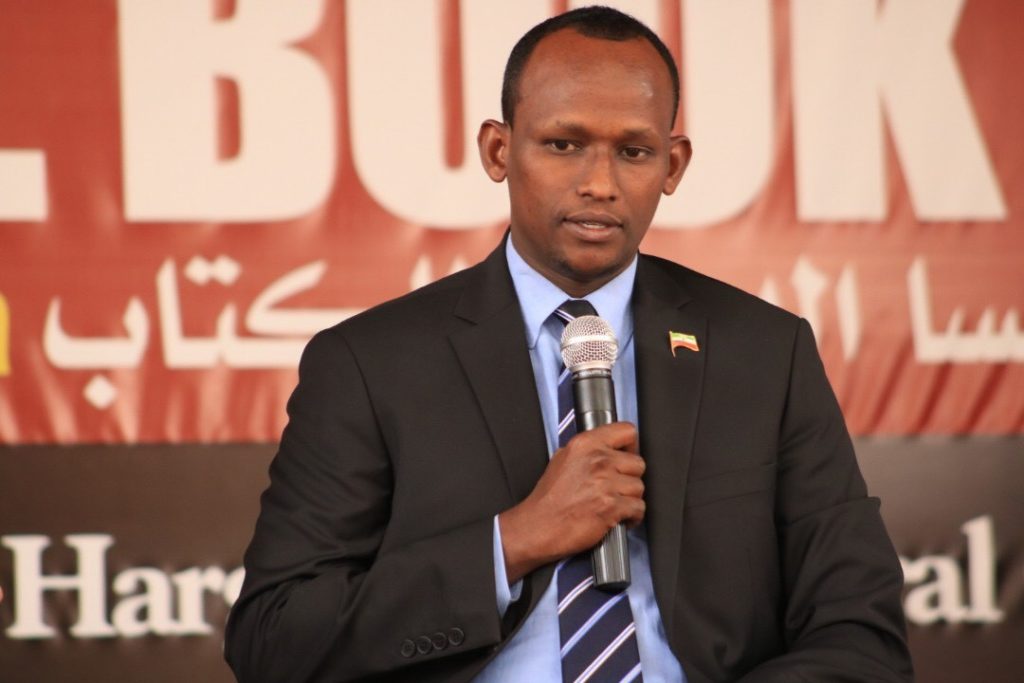
Role of Small Magazines
Small magazines play a vital role in providing a safe space for everyone to freely express themselves and feed into the bigger picture of knowledge production. Young people from the region who run small magazines shared their experiences on the challenges they face and opportunities they get from their work.
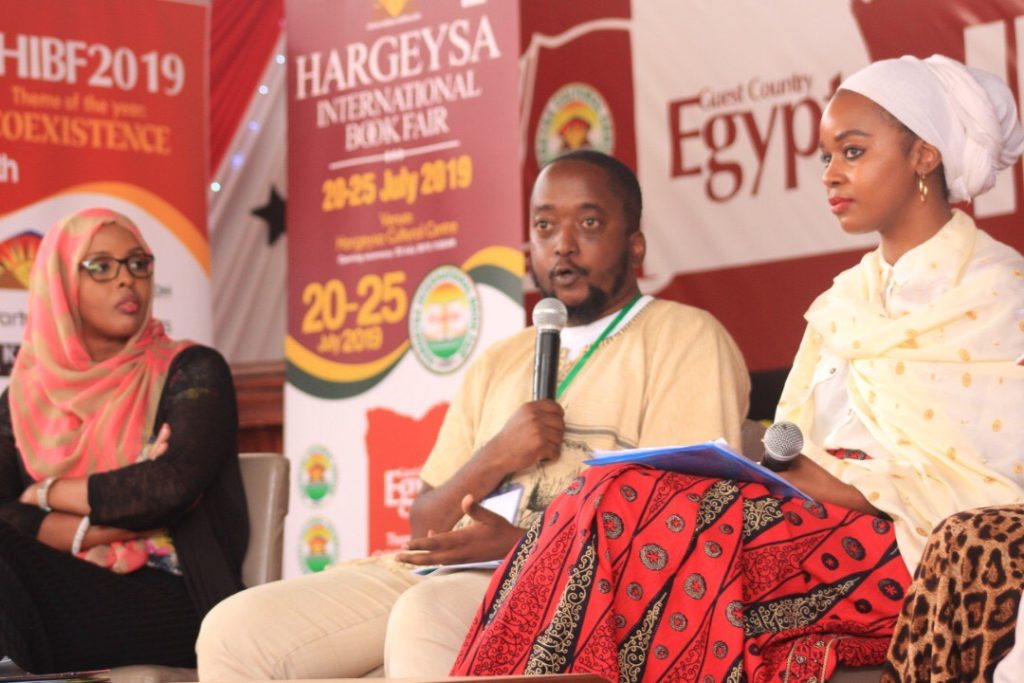
Panel on the role of small magazines
The following are some of the challenges highlighted by the discussants:
- Lack of funds, which limits the type of work they can do
- Disparities of work submitted. Panellists who run magazines in Somaliland conveyed that they face the challenge of having a gender balance in the content they produce since a very small number of females submit their work
- The quality of a good number of articles submitted are not per the standards of their magazines
Despite the challenges they face, the panellists emphasized that the opportunities they get outweigh the challenges. The following are some of the opportunities highlighted by the discussants:
- Collaborating with publishing houses
- Getting funding from organisations
- Being invited to workshops that improve their writing and editing skills
- Working in partnership with international organisations and research institutions
The panellists gave the following sagacious advise to young people who are interested in creating content:
- Consistency is essential when creating and producing content
- Content produced should be exemplary
- Have a collaborative approach in order to form networks
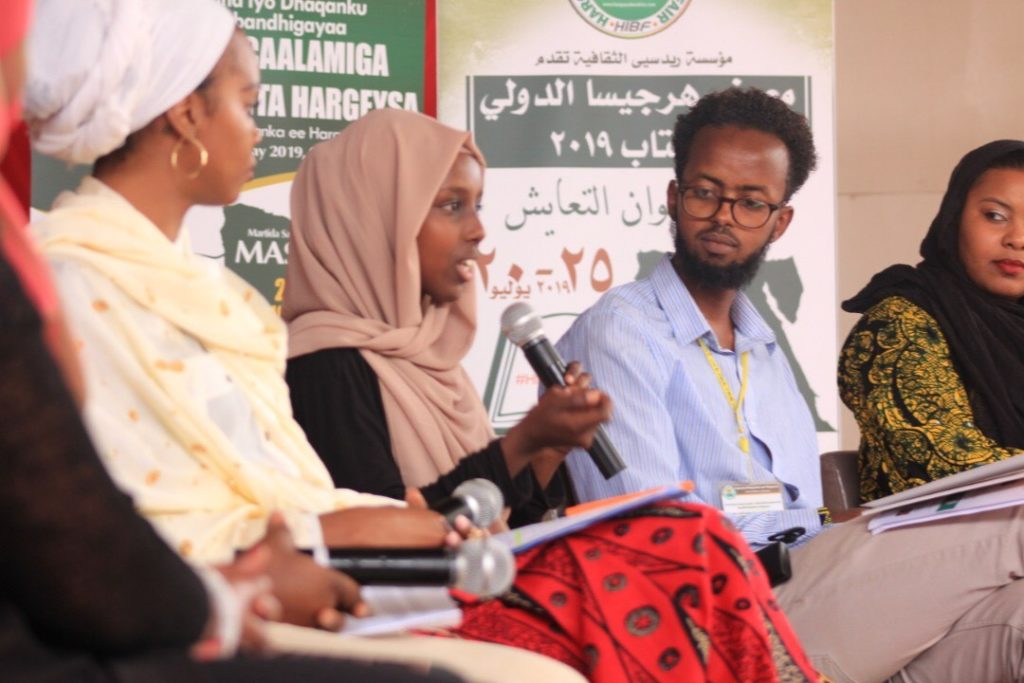
Panel on the role of small magazines
Literature
Maaza Mengiste the author of ‘Beneath the Lion’s Gaze,’ discussed her highly anticipated book, ‘The Shadow King,’ with Nadifa Mohamed, the author of ‘Black Mamba Boy’ and ‘The Orchard of Lost Souls.’ ‘ The Shadow King,’ is set during Italy’s invasion on Ethiopia. The book pursues the lost history of Ethiopian women during the war. Maaza explained how she grew up hearing about this war as a child and she heard the stories of what men did during the war. She noticed women who were mentioned in a few instances, were women whose role was to indirectly aid men in the war. She conducted research to get a better understanding of what the war was like for women. What she found was quite interesting, she found stories of women who were indeed soldiers. She then discovered her great grandmother, who has inspired part of the story in ‘The Shadow King,’ was a soldier in the army.
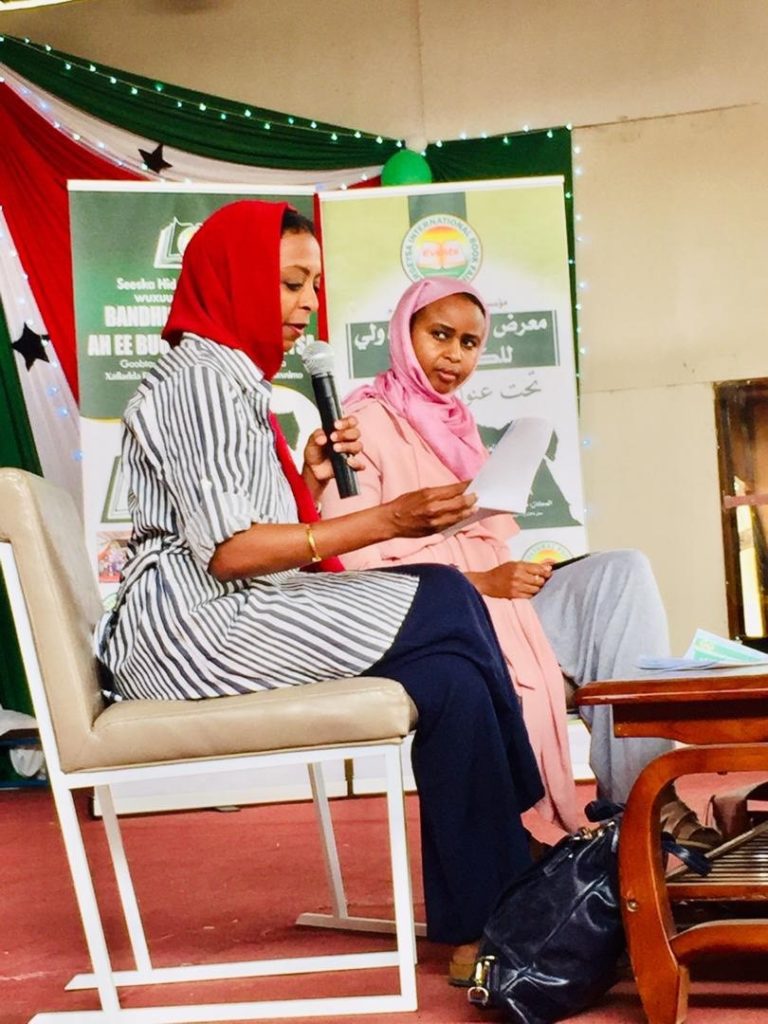
Maaza Mengiste in conversation with Nadifa Mohamed
